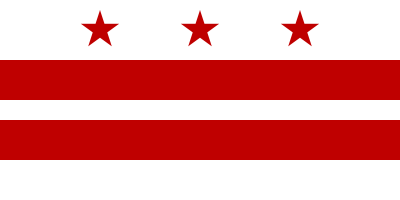District of Columbia

The District of Columbia recognizes the right of privacy and the tort of appropriation and some federal courts have suggested that the tort of appropriation is equivalent to the right of publicity.
Statute
NO
Common Law - Right of Publicity
MAYBE
Some federal courts have held that the misappropriation tort is “indistinguishable as a legal matter” from the “right of publicity.”
Lane v. Random House, Inc., 985 F. Supp. 141 (D. D.C. 1995)
Common Law - Right of Privacy-Appropriation Tort
YES
Vassiliades v. Garfinckel’s, Brooks Brothers, Miller & Rhoades, Inc., 492 A.2d 580 (D.C. 1985).
Post-Mortem Right
No case to date has considered a post-mortem right under D.C. law.
Limits on Right
Does the law require the plaintiff or identity-holder to be a celebrity or have a commercially valuable identity?
NO
However, some courts have required that the plaintiff’s identity have some value.
Tripp v. United States, 257 F. Supp. 2d 37 (D. D.C. 2003)
Pearce v. E.F. Hutton Group, Inc., 664 F. Supp. 1490, 1493-94 (D. D.C. 1987)
Peay v. Curtis Pub. Co., 78 F. Supp. 305 (D. D.C. 1948)
Does the law protect persona?
To date no court has addressed the question under D.C. law.
Is Liability Limited to Uses on Commercial Advertising or Commercial Speech?
NO
Several courts have applied the misappropriation tort outside of the context of commercial speech and advertising and the District has adopted the Restatement’s approach that allows a claim when a defendant receives a benefit, even if that benefit is not commercial.
Vassiliades v. Garfinckel’s, Brooks Brothers, Miller & Rhoades, Inc., 492 A.2d 580 (D.C. 1985)
Tripp v. United States, 257 F. Supp. 2d 37 (D.D.C. 2003)
First Amendment Analysis
To date no D.C. court or federal court has considered a unique test for balancing first amendment and right of publicity interests, but courts have engaged in the traditional balancing of privacy interests with newsworthiness and the public interest. One court applying D.C. law indicated that commercial speech would receive lesser First Amendment protection against a misappropriation claim, but noted that advertisements for expressive works are not commercial speech.
Vassiliades v. Garfinckel’s, Brooks Brothers, Miller & Rhoades, Inc., 492 A.2d 580 (D.C. 1985)
Lane v. Random House, Inc., 985 F. Supp. 141 (D.D.C. 1995)
Other Commentary
Privacy torts, including the misappropriation tort, have been held to be subject to a one-year statute of limitations in D.C. See Greenpeace, Inc. v. Dow Chem. Co., 97 A.3d 1053 (D.C. 2014)
